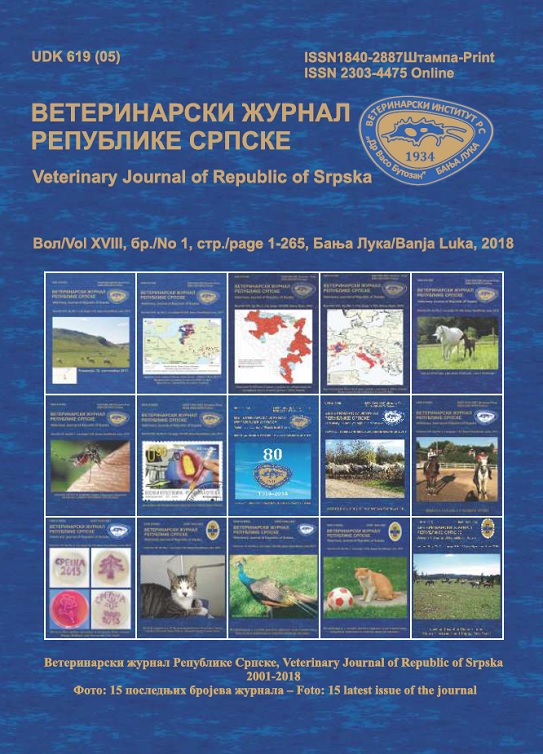CAPACITY OF ACCREDITED TESTING LABORATORIES FOR FOOD IN BOSNIA AND HERZEGOVINA IN 2017 IN RELATION TO THE FIELDS OF ACCREDITATION
DOI:
https://doi.org/10.7251/VETJEN1801004GAbstract
Accreditation refers to the formal recognition that a conformity
assessment body (laboratory) is competent to conduct conformity assessment
activities according to internationally accepted rules. The accreditation of
conformity assessment bodies in Bosnia and Herzegovina (B&H) is implemented by
the Institute for Accreditation of B&H (BATA). Accreditation provides confidence in
the laboratory test results and it is carried out according to the standard BAS EN ISO
/ IEC 17025: 2006. Test laboratories for food in a wider sense include laboratories
dealing with food, animal feed, drinking and swabs. The aim of the test is to determine
the capacities of accredited test laboratories for food in B&H in relation to the field
of examination or the field of accreditation. This enables a clear insight into the
readiness of test food labs to respond to food control requirements in order to protect
the health of animals and humans. During 2017, 29 food laboratories were accredited
in Bosnia and Herzegovina, 8 in Republika Srpska, and 21 in the Federation of
B&H. Out of 13 accredited testing areas in B&H, laboratories in Republika Srpska
accredited 10 fields (76.90%), while laboratories in the Federation of B&H accredited
13 areas (100%). When it comes to different food testing fields, B&H has capacities in
the form of accredited laboratories to respond to these requirements, and especially
important capacities are those for physicochemical food and water testing and
microbiological food testing (over 55% of accredited laboratories). They are followed
by microbiological testings of animal feed and water and toxicological testing of
residues and contaminants in food (over 30% of accredited laboratories).

